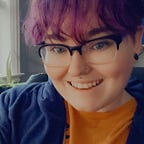Accessibility is the new frontier of social justice
Bold statement, I know. But as TikTok’s popularity has grown and influencers with disabilities are offering glimpses into their daily lives, their millions of followers are beginning to think about how the world around them is or is not accessible for everyone. TikTok has allowed people to begin to understand what life is like for people with Tourette’s Syndrome, amputations, paralysis, deafness, scoliosis, cerebral palsy, amongst many, many other disabilities.
Accessibility typically refers to websites and making sure that those sites are usable by all users. At least that’s how I’ve always thought about it. The word has started to evolve, however, and is used in reference to making sure the world around you is usable by everyone.
Prior to March 2020, if you were in a wheelchair and wanted to attend an event that was held in a building without a ramp or an elevator, then you didn’t go. But now, Zoom, Google Meet, FaceTime, Facebook Messenger, etc. has made it possible to attend conferences, workshops, seminars, meetups, and any other type of gathering without worrying about how you would access the event.
School administrators and teachers had to learn new technologies and make sure that their students were able to understand and use those technologies while learning their regular curriculum. Throw in spotty WiFi connections and the fact that 44 million homes in America lack adequate broadband Internet connections, you can see the problem.
Accessibility is more than making your website accessible. It’s making sure users can access the content they need despite a 3G connection on an old cell phone. It’s continuing to have ASL interpreters at events. It’s making sure public events are also broadcast online so those that can’t come can still participate. It’s making a deodorant that can be used by individuals with limited grip strength or only one hand.
As people fight to make sure that everyone has a seat at the table, it’s our job as engineers, developers, designers, product managers, etc. to make sure that everyone really does mean everyone by making our products usable by everyone.
